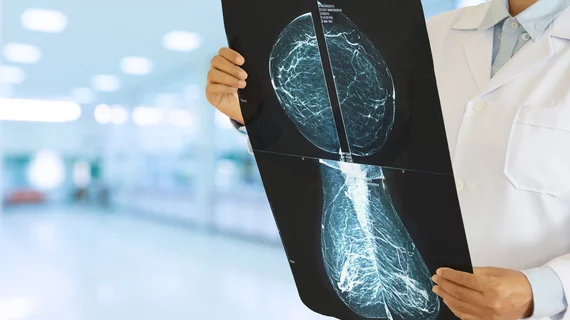Model predicts 10,000 excess US deaths due to cancer screening delays: ‘We’re very worried’
A National Cancer Institute model is predicting in excess of 10,000 U.S. cancer deaths over the next decade due to delays in diagnosis brought about by the pandemic.
The chief of this NIH offshoot shared that grave prophecy in a new interview with Stat News, published on Friday. This model only accounts for mammography screenings and colonoscopies to detect breast and colon cancer, and amounts to a roughly 1% increase over its original prediction prior to the pandemic.
“We think that [mortality] estimate we provided is very conservative and likely to grow if we continue to postpone screening treatment and other cancer care,” Ned Sharpless, director of the NCI, told the news site. “We’re very worried about the consequences of … delaying therapy on our patients.”
Across the country, radiology providers have reported massive drops in imaging volumes as states have shut down nonurgent care to preserve PPE and keep hospitals open for COVID patients. Northwell Health in New York, for one, estimated last month that it’s mammography volumes plummeted 94% during the seven-week period ending April 18.
Hospital leaders in Los Angeles County, meanwhile, are worried about a “silent sub-epidemic” of delayed care stemming from the COVID crisis. Sharpless shares similar concerns and is urging patients and providers to help head off thousands of additional deaths.
“Ignoring life-threatening non-COVID-19 conditions such as cancer for too long may turn one public health crisis into many others. Let’s avoid that outcome,” he said.
Read more from the interview below:

